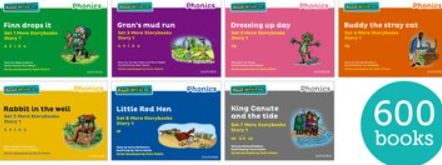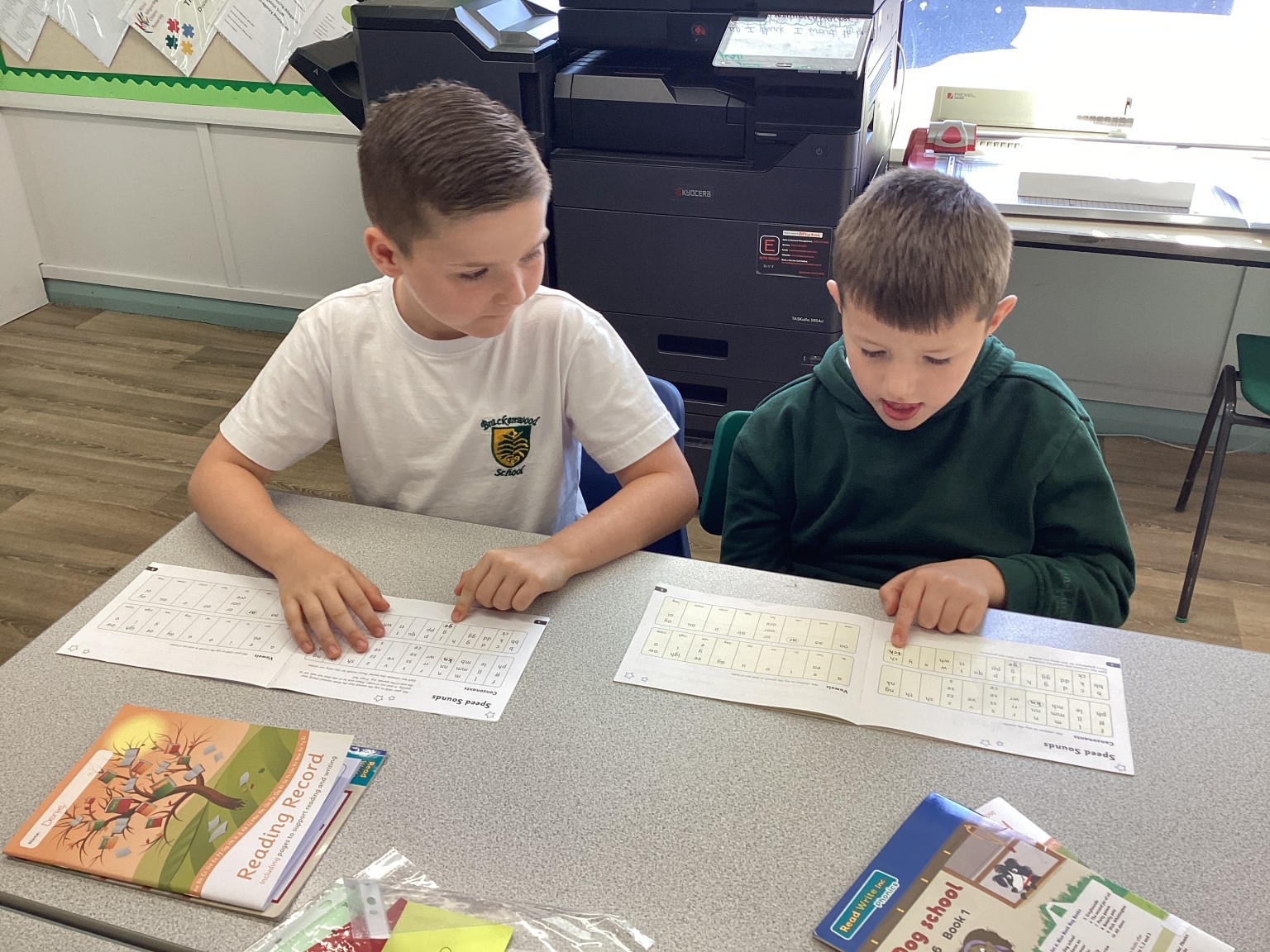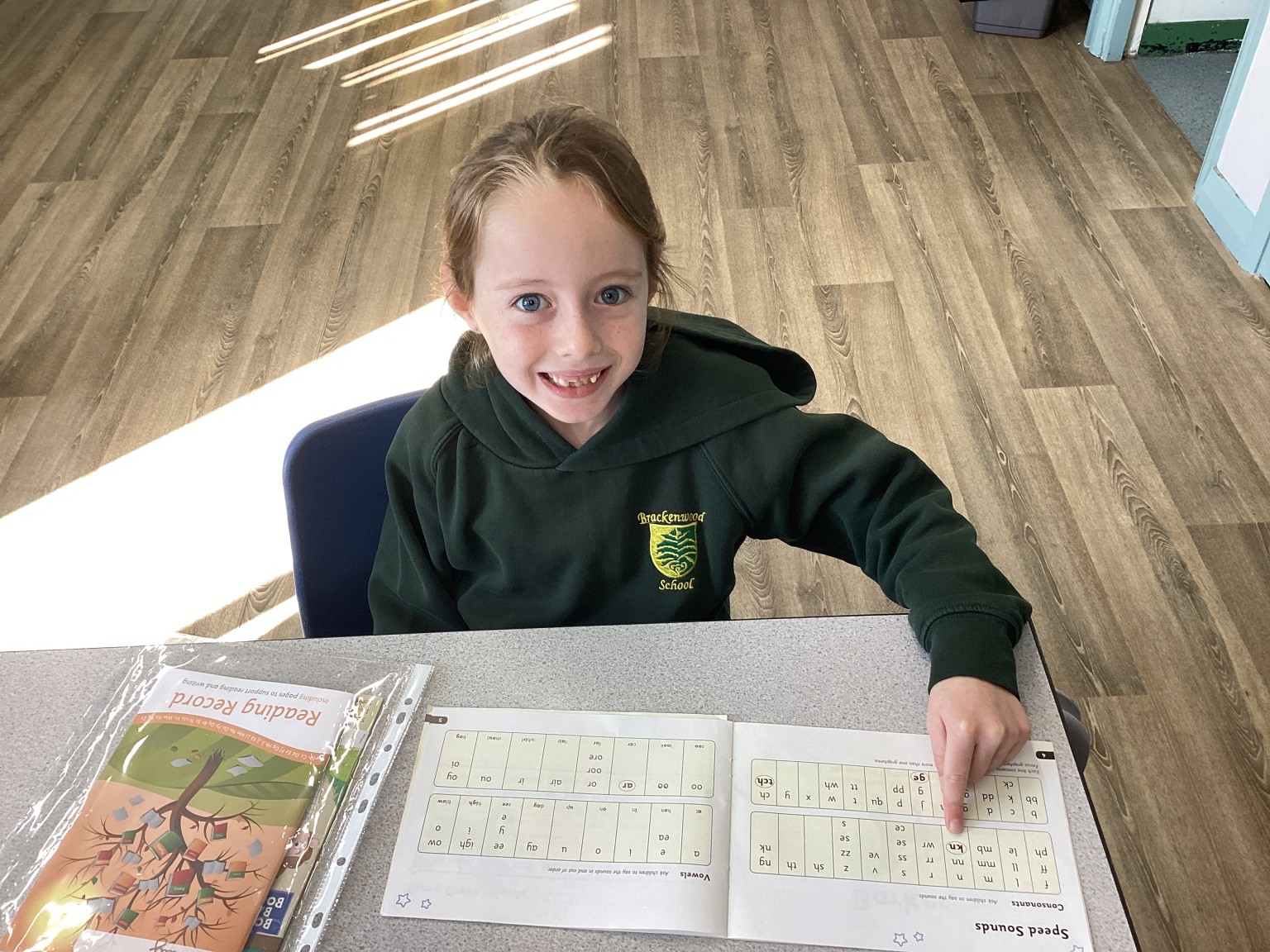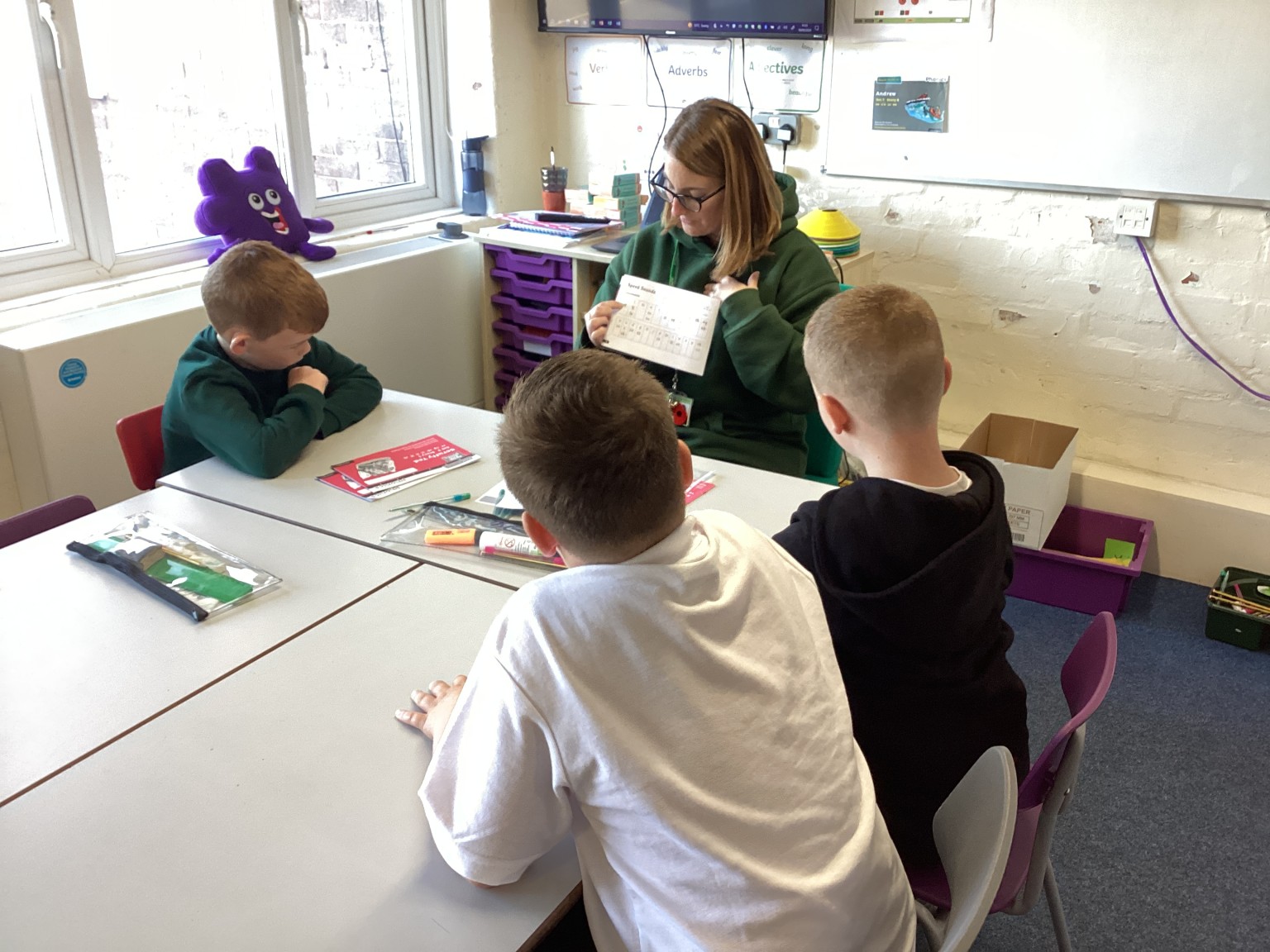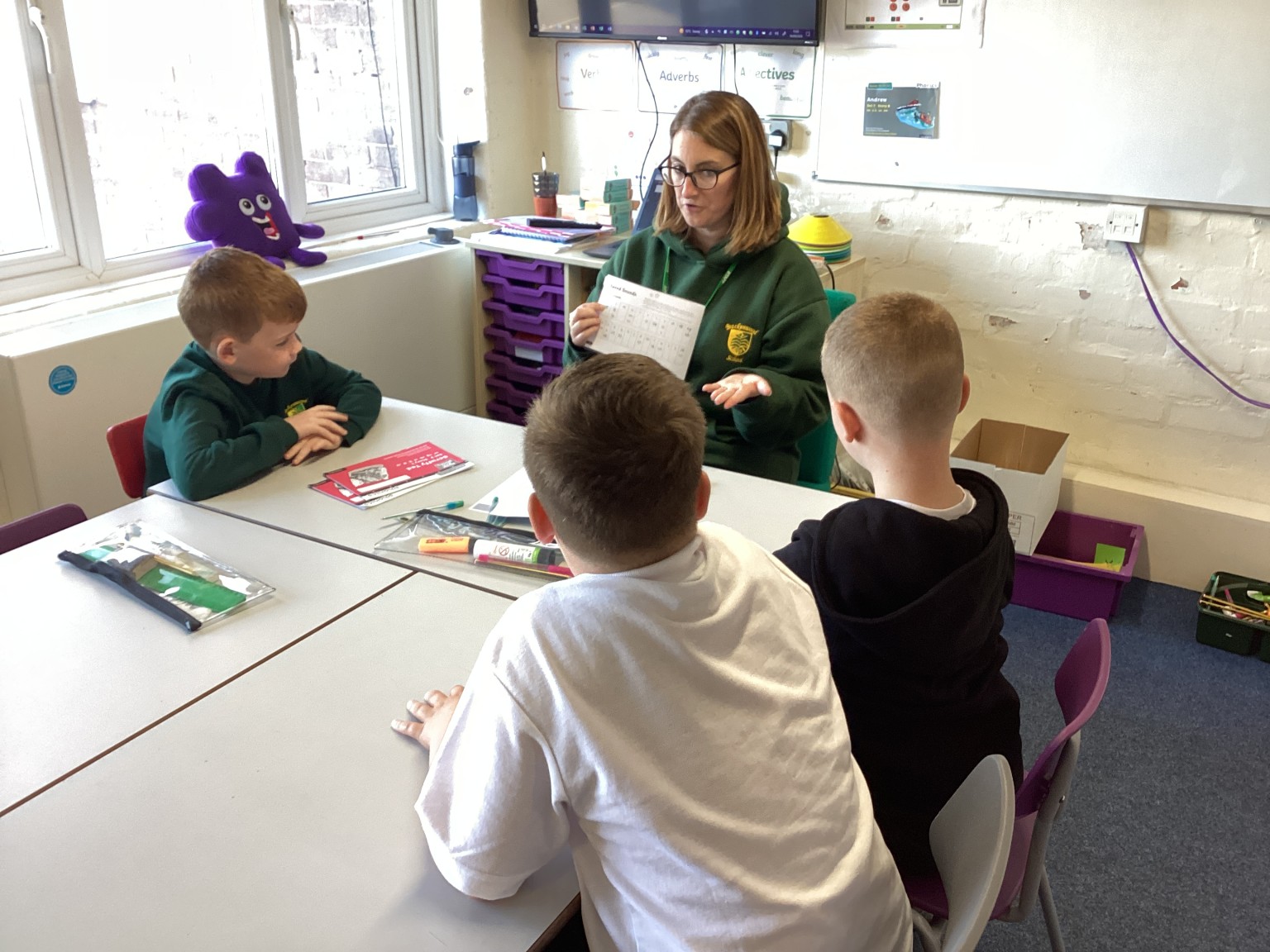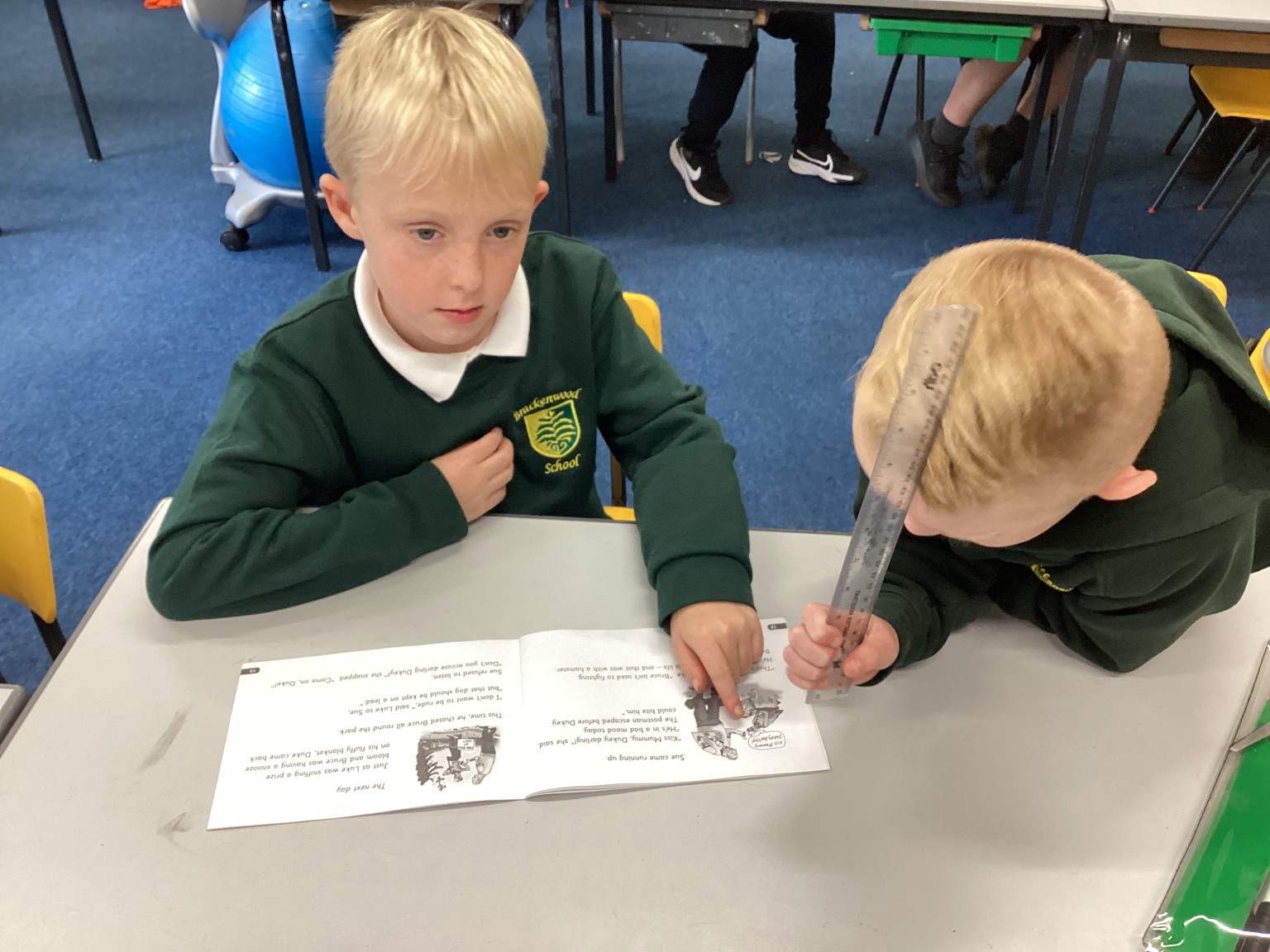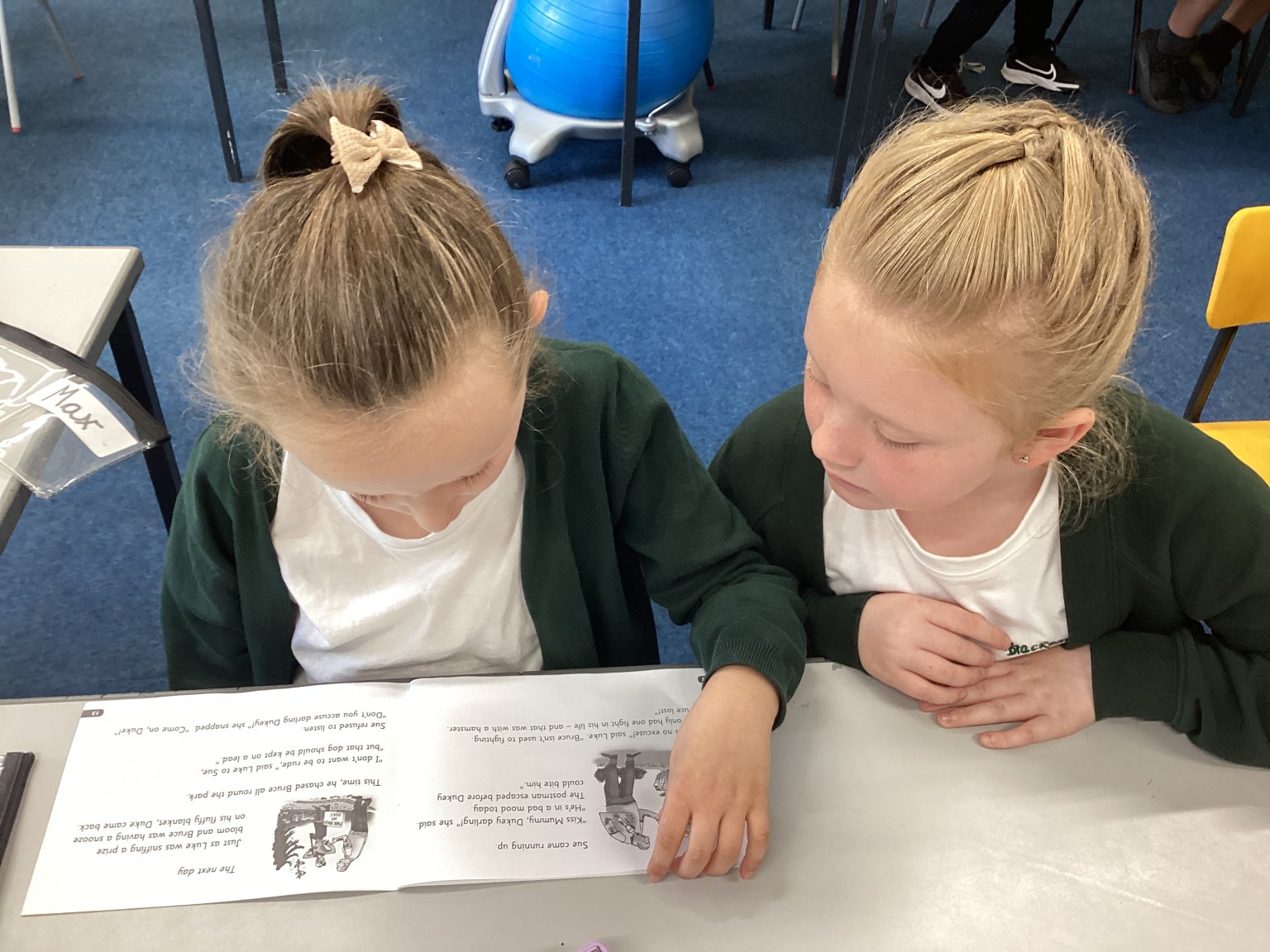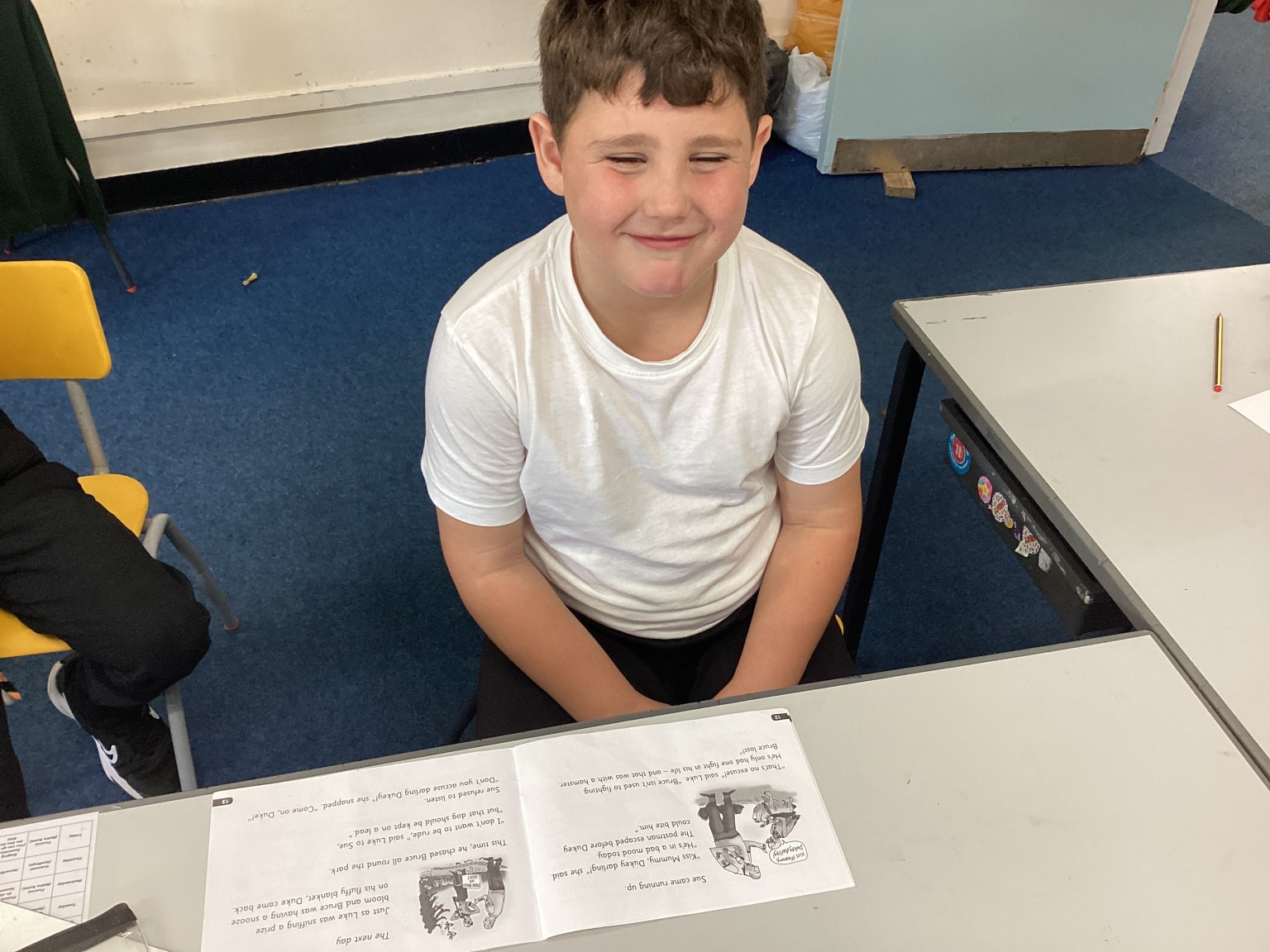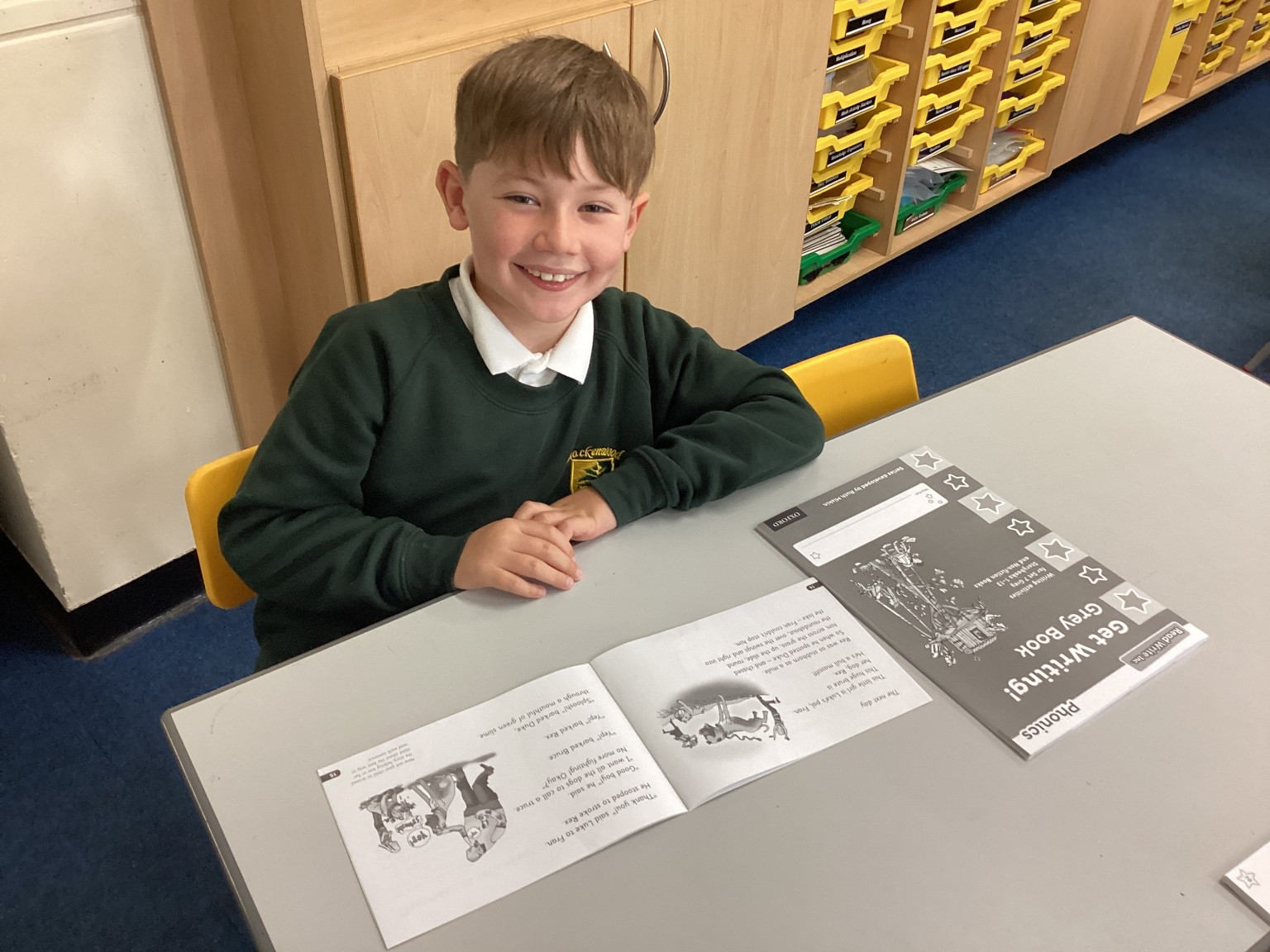Phonics Curriculum at Brackenwood Junior School
Share this page
Phonics
Daily catch-up lessons
When children start at Brackenwood Junior School in Year 3, they are assessed on the KS1 Phonics Screening Check as well as the Read, Write Inc Phonics assessment and we also use the data from KS1 to support us. This is to ensure that if pupils are not confident and secure with their phonics knowledge, they should be part of our catch-up lessons in order to build confidence and self-esteem so that they can then access all learning. Being able to read accurately by age 6 has a strong correlation with future academic success therefore it is our mission to ensure that all pupils can decode as quickly as possible to enable them to be fluent readers. These children urgently need to catch up, so the gap between themselves and their peers does not widen.
We teach Phonics through Read, Write Inc Phonics for Year 3 and 4 catch-up lessons and through Read, Write Inc Fresh Start for Year 5. The programmes are systematic and synthetic programmes and they ensure children build on their growing knowledge of the alphabetic code. It enables are pupils to build their confidence and proficiency in tackling unfamiliar words as they read. At Brackenwood Junior School, we also model the application of the alphabetic code through phonics in shared reading and writing, both inside and outside the phonics lesson and across the curriculum. We have a strong focus on language development for our children because we know that speaking and listening are crucial skills for reading and writing in all subjects.
Pupils on our catch-up programmes have daily 1 hour to 1.5 hours of lessons daily. This is during the Reading and Writing lessons as pupils need to develop their phonics knowledge before being able to access VIPERS Reading comprehension lessons and Writing lessons. These lessons are taught by fully trained adults who receive regular CPD.
In Year 5, pupils who need additional phonics support and learning, participate in Read, Write Inc Fresh Start lessons where they also develop their spelling and handwriting.
Read, Write Inc. Fresh Start explained by Ruth Miskin https://www.youtube.com/watch?v=Nk9tSZ5wceo
Ensuring consistency and pace of progress
All adults teaching phonics lessons have had relevant and thorough training. Their CPD is also ongoing and regular. This ensures that the staff have the same expectations of progress. We use the same language, routines and resources to teach children to read so that we lower children’s cognitive load. The Read, Write Inc programmes are followed with fidelity and lesson templates are followed consistently so that they are structured in the same way. Following the sequence builds effectively and cumulatively on what has been taught before. Staff are directed to CPD videos where appropriate. The Reading and Phonics Lead regularly monitors lessons and learning. In addition to this, SLT, our School Improvement Lead from our MAT as well as external validation also contributes to our monitoring in order to promote consistency and a high quality of learning. The Reading and Phonics Lead alongside the staff teaching and assessing phonics also uses summative data to identify children who need additional support as well as pupils who need to progress through the programme rapidly.
Assessment and groupings
Baseline summative assessments are completed by pupils on entry into Year 3. These ensure any pupils who need to access Phonics programmes do quickly.
Within lessons, pupils are grouped with peers who have similar starting points. We believe that a learning space which has minimal distractions is critical for these pupils to make rapid progress. The summative assessments allow our adults to identify precise gaps in pupil’s phonic knowledge so that this can be addressed within lessons.
We carefully consider group sizes so that pupils are taught in small groups which aids their concentration.
Pupils are assessed using summative assessments – at least every half term - to ensure they are in the most appropriate group and to enable them to make rapid progress. Our aim is to get children back into whole class Reading and Writing lessons as quickly as possible without it impacting negatively on their knowledge and understanding.
Our Reading and Phonics Lead tracks the groupings based upon the summative assessments to ensure progress is made effectively. This is done in conjunction with the adults teaching and assessing phonics.
We then reassess the pupils who did not pass the Phonics Screening Check to ensure they pass in a timely manner.
In addition to summative assessments, children are assessed through ongoing formative assessment. This is supported by a range of pedagogy strategies.
SEND
Pupils, who are working through phonics programmes, benefit from repetition and regular practice therefore all pupils have a support plan and support packs related to their targets. These are written by class teachers with support and information from adults teaching phonics lessons, the Reading and Phonics Lead as well as the SENDCo. Children complete their support packs outside of their phonics lessons both with adults and independently.
Supporting your child at home
If your child is on a phonics programme, they will bring home a decodable reading practice book, which is matched to their phonic understanding to ensure success is shared with their fsmily. In order to make the most rapid progress for your child, we ask that you read with them daily. The repetition of the sounds helps to embed them.
Promoting a love of reading for pleasure is also very important. As well as their phonetically decodable reading book, reading for pleasure Starbooks books also go home for parents to share and read to children. Visits to the Local library, local bookshops and reading books before bed together are just a few suggestions of how to further support your child with reading.
In addition to this, we have various helpful links below:
Read, Write Inc Phonics explained by Ruth Miskin https://www.youtube.com/watch?v=-6dSsXkD1wM
Blending sounds with Ruth Miskin https://www.youtube.com/watch?v=dEzfpod5w_Q
How to teach complex sounds with Ruth Miskin https://www.youtube.com/watch?v=NRYiOcqyEs8
Bebington Central Library https://www.wirralinfobank.co.uk/Services/10206
Bearhunt Bookshop (Children’s bookshop in Bebington) https://bearhuntbooks.co.uk/?srsltid=AfmBOopTgd4y-wy3s-qO3huMRfV6yNIpUUa84bfe3obfn69h4UXty0mE
Reading for pleasure
To ensure that pupils also develop a love of reading and books, adults delivering phonics lessons spend the end of each session reading to the children. The children have the opportunity to vote for books from our Starbooks spines. When they finish reading a book as a group, they will get a signature on their Starbooks reward card so that they have equal opportunity to earn rewards and be motivated to read like their peers. Children also visit our local library during their time on the programme and encourage pupils to become members if they are not already.
‘Reading for pleasure is the single most important indicator of a child’s success.’ (OECD 2002)
If parents and carers have any questions, you are welcome to arrange a meeting or telephone call with our Reading and Phonics Lead or alternatively, you can email her via the school office email address: schooloffice@brackenwood-junior.wirral.sch.uk


